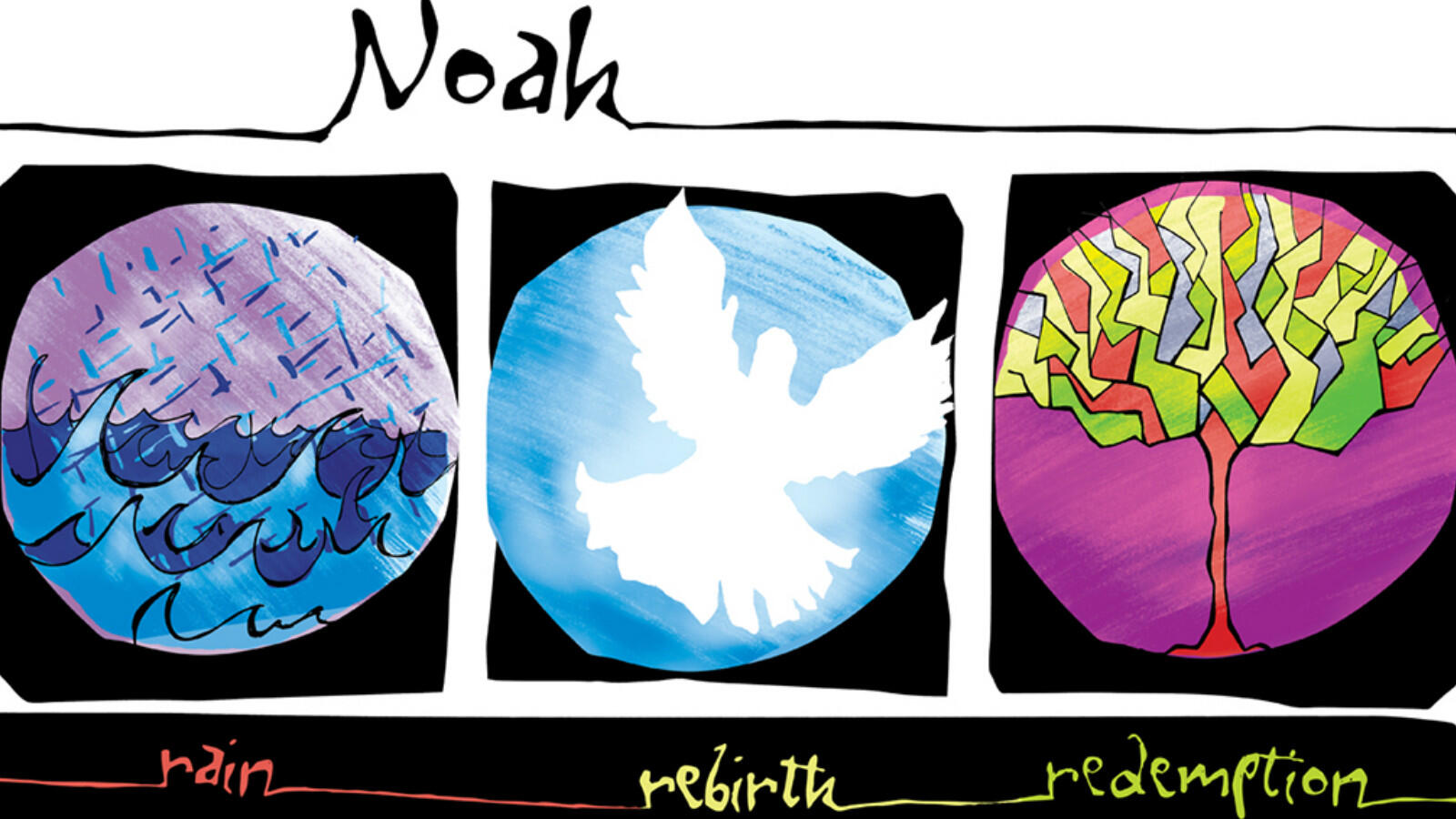Commentary on Parashat Noach, Genesis 6:9-11:32
Parashat Noach, filled with pairs of animals marching to an ark, a peace-seeking dove, and a righteous family on an epic journey to rebuild the world, is often thought of as the perfect Torah portion to teach to small children. However, there are many more adult elements of this portion that deal not only with the Noah’s (relative) goodness, but also with the nature of evil that filled the earth before the flood.
At the beginning of the portion, we learn:
וַתִּשָּׁחֵ֥ת הָאָ֖רֶץ לִפְנֵ֣י הָֽאֱלֹהִ֑ים וַתִּמָּלֵ֥א הָאָ֖רֶץ חָמָֽס׃
The earth became corrupt before God; the earth was filled with lawlessness. (Genesis 6:11)
In these early days of humanity, what exactly constitutes corruption and lawlessness?
The Hebrew term, chamas, is often used to describe a particularly base form of hatred and depravity. The 11th-century Egyptian commentator Ibn Ezra says that this word describes two crimes in particular: theft and the exploitation and rape of women.
With your help, My Jewish Learning can provide endless opportunities for learning, connection and discovery.
The 13th-century French commentator known as the Chizkuni offers additional insights into the behaviors that took hold among humanity before the flood. Focusing on the term lifnei Elokim (“before God”), he claims that this term harkens back to Genesis 6:2, which refers to bnei Elokim (“the children of God”), divine beings with special proximity to God. According to Chizkuni, this phrasing teaches that the moral rot in Noah’s time began at the top of society and quickly trickled down to society at large. Building on Ibn Ezra’s commentary, Chizkuni claims that sexual assault was pervasive among social leaders and quickly spread from there, causing God to be particularly disgusted.
Chizkuni goes on to detail the type of theft that pervaded the earth before the flood. It wasn’t merely theft in general, but a specific type of theft that undermined faith in the legal system. According to Chizkuni, stealing more than one small unit of currency known as a p’rutah was understood to be a simple and straightforward form of theft, known in Hebrew as gezel. But chamas describes a more nefarious and strategic form of theft in which people would steal slightly less than a p’rutah to escape punishment. He explains this kind of behavior through a specific example:
When someone brought a basket full of fruit to market offering to sell it, he would be mobbed by people, each of whom helped himself to less than the value of that coin. By using this subterfuge, the party helping himself to fruit without paying for it escaped being cited before a judge, who did not entertain claims below that amount.
According to Chizkuni then, the types of cries that are so horrendous they would cause God to wipe out all of humanity are those that undermine basic human dignity and the legitimacy of the legal system. Rape is a crime that not only inflicts physical harm, but exacts profound and lasting spiritual harm to the victim and those who care about them. The type of clever scheming described above harms not only specific merchants, but the legal system at large, causing the greater society to lose faith in its ability to keep human greed in check and allow markets to function normally.
Human societies, filled with imperfect people, will always include individuals who do wrong. But the kinds of sins that lead to existential threats are those that undermine basic human dignity and public confidence in the proper functioning of the law. Parashat Noach should give us pause when we are inclined to game the system for ephemeral personal gain or attack the dignity of others for temporary personal pleasure. A world worthy of an eternal covenant with God is one led by leaders who model the best of who we can be, and composed of societies that are steadfast in safeguarding the dignity of its members and the moral claims of its legal system.
When we lost our way in the days before the flood, we were lucky that Noah was good enough to rebuild a destroyed world. As inheritors of God’s promise never to destroy the world again by flood, we can only look to ourselves to deconstruct corrupted systems and rebuild a world worthy of divine blessing.
Read this Torah portion, Genesis 6:9 – 11:32, on Sefaria
You May Also Like:
Sign up for our “Guide to Torah Study” email series and we’ll guide you through everything you need to know, from explanations of the major texts to commentaries to learning methods and more.
Subscribe to A Daily Dose of Talmud: Daf Yomi for Everyone — every day, you’ll receive an email that offers an insight from each page of the current tractate of the Talmud. Join us!



